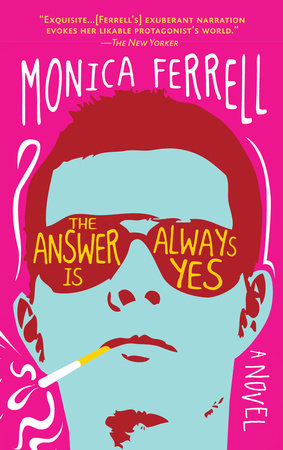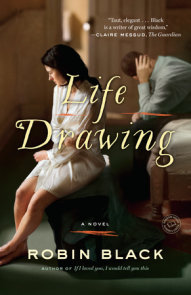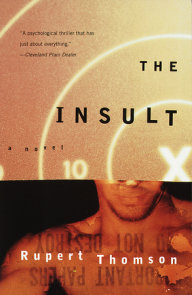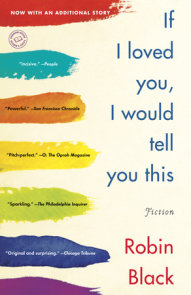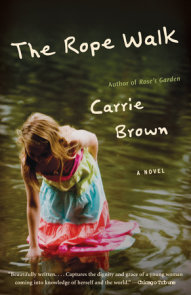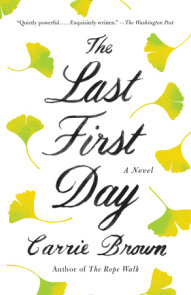READERS GUIDE
By turns darkly comic and suspenseful, The Answer Is Always Yes takes readers to New York’s club scene in the mid-1990s, when Ecstasy and rave music kept a generation entranced. A sleek reinvention of the coming-of-age tale, this is the story of a high-school outcast from Teaneck, New Jersey, who begins his freshman year at NYU determined to be cool, at any cost. Soon Matthew Acciaccatura is transformed into “Magic” Matt, rising to fame as a promoter at one of the city’s hottest venues. Matt’s story is glossed in the margins by a German researcher, Dr. Hans Mannheim, whose strange connection to our protagonist remains unclear – until the novel’s stunning conclusion. Creating a novel of dazzling personas and shattered illusions, Monica Ferrell proves to be one of the most original writers of her generation in this sizzling debut.The questions and discussion topics that follow are intended to enhance your reading of Monica Ferrell’s The Answer Is Always Yes. We hope they will enrich your experience of her revolutionary novel.
Questions and Topics for Discussion
1. Discuss the novel’s title. How does “yes” function for the characters? What does it mean to say “yes” to anything? How did Matt respond to “no” when he was growing up in Teaneck?
2. How would you describe the friendship between Matt and Jason? How does the dynamic change when Sophie is added to the mix?
3. In chapter nine, Vic Spector tries to get Matt to admit why he’s really at the club. What do you think Matt wants from the club scene? What do Matt and Vic expect from each other? Do promoters exploit club kids, or are the promoters the ones who are actually getting exploited?
4. What is the effect of the “research” projects that frame the novel, including not only Dr. Mannheim’s reports but also the notes from researcher M.F., introducing and closing The Answer Is Always Yes? How did your attitude toward Dr. Mannheim shift while you read his commentary? Did you trust him?
5. How do the characters experience one another on Ecstasy? Without it, how do they feel about themselves and their lives?
6. Who has the upper hand in Matt and Sophie’s relationship–in love, in bed, and otherwise? What is the nature of their attraction for each other?
7. How does the author balance the tragicomic aspects of Matt’s story? Which parts of The Answer Is Always Yes entertained you the most? Which scenes were the most startling?
8. What was your reaction to Matt’s mother? How did she influence Matt’s decisions as he reinvented himself in Manhattan?
9. How does NYU, along with its surrounding neighborhoods, form an appropriate backdrop for the novel?
10. What would Lisanne think of Dr. Mannheim’s depictions of her? How does the story of their marriage compare to the scenes of other lovers in the book? Does Dr. Mannheim see the world accurately?
11. Did you read the novel as a satire? If so, who is being satirized? Do any of the allusions remind you of people you know?
12. In his “Chronological Gloss,” between the fourth and fifth chapters of part two, and again in another “Chronological Gloss” between the third and fourth chapters of part three, Dr. Mannheim provides historical data for the years 1995 and 1996. What makes these years ideal for the story of Matthew Acciaccatura? What details does Monica Ferrell include to capture that particular moment in New York lore? Is the cultural climate of New York (and America) so very different in the twenty-first century?
13. Is Katie Ford’s father solely responsible for the violence in the closing chapter? Was Dr. Mannheim’s incarceration, followed by probation, an appropriate punishment?
14. How did you react to the final image from Dr. Mannheim, in which Sophie dances to the suave words of Irving Berlin? How will she remember this chapter of her life?
15. What did “cool” mean to Matt? What does it mean to most people? What was the source of Matt’s magical rise to fame at Cinema?
16. Did you reinvent yourself in college? In the transition years of late teens and early twenties, what is revealed: your true self, or a false, derivative self that eventually gets abandoned?






